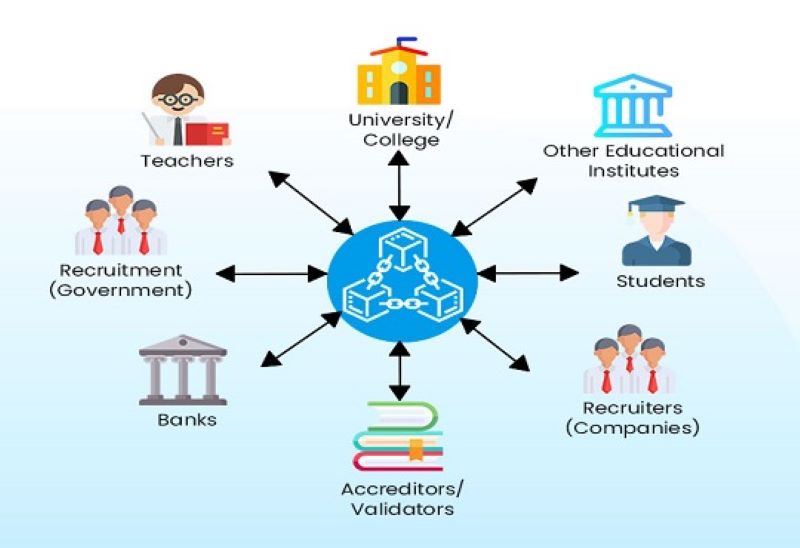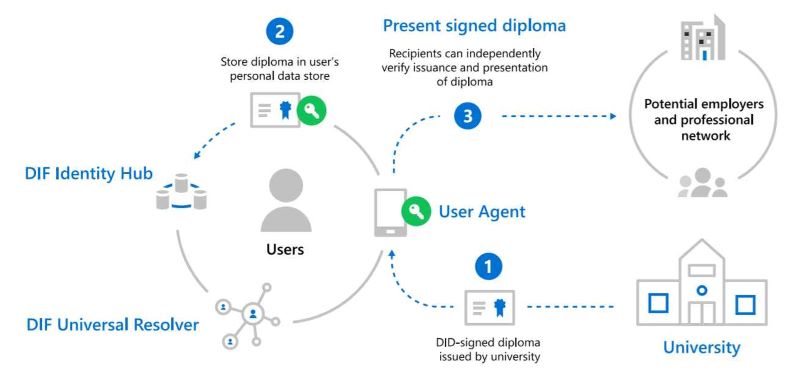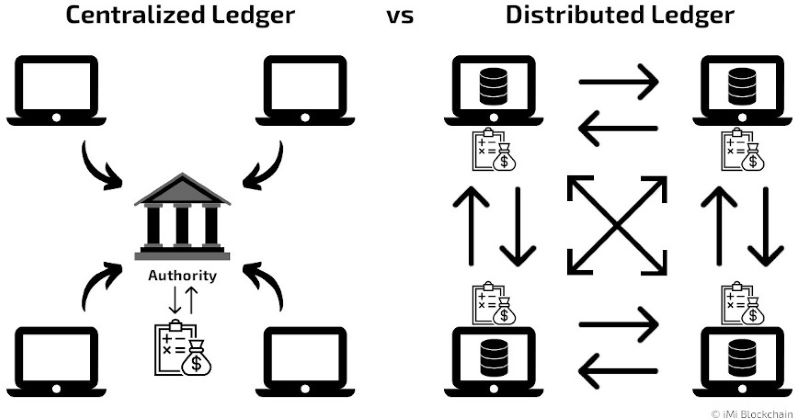Ever wondered about the benefits of decentralized learning platforms with blockchain? Imagine an education system where your credentials are secure, access is democratized, and learning is truly collaborative. Discover how this groundbreaking technology is transforming education and empowering learners like never before. Curious? Let’s dive in!
Benefits of decentralized learning platforms with blockchain
Enhanced Security and Privacy for Learners
Blockchain keeps your learning safe and private. It’s like a vault that only you have the key to. It makes sure no one can mess with your school records. This means you can learn without worrying about hackers or sneaky eyes. It’s a game-changer for safe study time online.
Imagine a school where all your reports and grades are super secure. Blockchain does that. No one can change your grades once they’re in the system. It’s because of something called cryptography. It scrambles your info so only the right people can read it.
Also, you’re in charge of who sees your marks. Say you’re applying to college. You can send them your grades directly. This means your information stays with you and only goes where you want it to.
Blockchain in e-learning is a big leap for privacy too. You can be sure your data stays safe. It’s because each piece of info is a block. Once it’s added, it’s hard to get to without permission.
Imagine having a space online just for you and your studies. This space lets you store and share stuff from classes without worry. That’s what blockchain gives you. You might hear people call blockchain a ‘decentralized ledger’. That means no one person or place controls your school info. Everyone on the blockchain checks it, which makes it really hard for anyone to lie about what’s there.
The Power of Tokenization in Personalizing Education
Now, let’s talk about making learning just for you. Blockchain can use something called tokens. These tokens are like special coins. They can represent your smart work in school or even be used to buy new classes.
This is tokenization in education. You can get tokens for doing well in a quiz or project. These tokens can unlock new lessons or even help you in games. You can pick what you learn next or swap tokens with friends for help. It turns learning into a fun game.
Smart contracts come into play too. These are like deals or rules written in code on the blockchain. They make sure everything in your learning trip is fair. They might say, “Finish this task, and you’ll get five tokens.” Once you do that, the blockchain checks it and the tokens are yours.
Tokenization can push you to learn more. It makes school work feel like a treasure hunt. Each task you do can lead to a token, and those tokens can lead to prizes or new skills.
What’s great is that this approach fits you like a glove. It fits what you’re good at and what you like to learn.
In a nutshell, this way of learning is not only safer but also designed for you. It makes sure your data is tucked away safe and lets you own your learning journey. Not to mention, it makes school way more fun!
Blockchain is not the future; it’s the now of education. It shakes up how we learn for the better. So, get ready to learn and own your achievements in a whole new way.
Creating a Decentralized Ecosystem for Peer-to-Peer Learning
Imagine a world where learners connect directly with each other. We can share knowledge without big fees or third-party apps. That’s the power of decentralized learning ecosystems. They use blockchain to make this dream real.
Leveraging Smart Contracts for Efficient Course Management
In a decentralized world, smart contracts play teacher’s pet. Think of them as self-operating digital agreements that ensure everyone sticks to the plan. If a student completes a course, the contract knows. It then gives them credit, no delay.
Smart contracts cut down on paperwork and mistakes. They make sure course management is smooth and fair. Teachers can focus more on teaching, less on red tape. Students get to learn more, worry less.
Advancing Transparency and Immutability of Records
Blockchain is like a digital stone tablet for our educational records. Once something is on there, it stays. You can’t change it. This means no one can mess with your hard-earned grades.
Educational records on blockchain are clear as glass. Everyone can see the achievements you’ve earned. They’re locked in and trusted worldwide. It’s a big win for students moving across borders.
So, we’re building schools on the blockchain. Everyone can learn from everyone, safely and openly. Our future is bright, as we all grow and learn together, powered by blockchain.
Empowering Students with Blockchain Innovation
Establishing Self-Sovereign Identity and Content Ownership
We often hear about identity theft and privacy issues. Blockchain changes this for students. It gives them a self-sovereign identity. Simply put, this means each student controls their personal data entirely. No one else can mess with it. With blockchain in education, each learner has a unique digital ID. This ID holds their work, records, and achievements. It’s theirs and only theirs.
Let’s talk about content ownership. Students can truly own the work they create. In a usual class, you write a paper and the teacher grades it. But with blockchain, when you make something, it’s linked to your digital ID. It stays with you, from school to job hunting and beyond. It’s like having a digital backpack of all your cool work.
Preventing Fraud in Academic Credentials with Decentralized Verification
Now, let’s tackle fraud in academic records. We want to trust that degrees are earned. With blockchain, we can. Each certificate goes on the blockchain. Think of this as a super-secure list that no one can hack or change. When this happens, verifying someone’s education is easy. And it’s strong against fraud. People trying to fake degrees? They won’t get far. Employers can quickly check the blockchain and know if a degree is the real deal.
Decentralization means there’s no central point that can be tricked or messed with. Verification is spread out. Many computers check and agree that a record is true. So, blockchain doesn’t just store records; it’s a way to check them fast. You went to XYZ University? The blockchain can prove it, easy peasy.
In conclusion, blockchain is big news for students. It lets them own their data and work, today and tomorrow. It stops sneaky folks from making fake degrees. Plus, it makes checking someone’s school story quick and true. Blockchain is putting the trust back in education. And that’s something we all can get excited about!
Broadening Horizons with Scalable Blockchain Solutions
Driving Interoperability and Global Learning Opportunities
Blockchain breathes new life into how we learn together. It links different learning tools, so students everywhere get the same chances. We call this interoperability. It means no matter where you are, you can join a course or use tools from far away. This breaks walls between countries, making learning a global game.
Let’s find out how blockchain helps students learn from anywhere. Can a student in India take a course from a university in the USA? Yes, they sure can! Blockchain creates a shared space where courses and records live together. Everyone can reach them and trust them. This is a big win for students who want to learn without borders.
Blockchain makes education fair for all. It lets people who move around keep their school records safe and sound. They can show they learned the skills, even far from home. Smart contracts make it all run smooth. They are like promises in code that do tasks by themselves when conditions are met. This helps everyone know what to expect and trust in the system.
Realizing Cost Reductions and Maximizing Educational ROI Through Blockchain Technology
Schools spend a lot of money on handling records and making sure they’re safe. Blockchain can cut costs by taking care of these things with less fuss. It also means schools spend less on tech to keep data secure. With blockchain, the records are like a rock—hard to break and always there.
How does blockchain save schools money? It’s simple. By sharing one system, schools don’t need many copies of records. They use the blockchain to keep track of grades and degrees. No cheaters can mess with records here. This saves cash and time, and schools can use that to teach even better.
Sounds good, right? But saving money is just the start. Schools also get a better return on investment (ROI). With blockchain, they can track where each dollar goes. They can make courses that match what students want. Better courses mean happier students and happier students stick around. When schools use blockchain well, they get more bang for their buck.
When educational ROI grows, it helps everyone. Students learn skills that matter, and they get good jobs. Schools look better when their students do great things in the world. Blockchain helps by making sure every student gets what they need to succeed.
That’s the scoop on blockchain in learning. It’s like a big team where everyone pitches in and wins together. With blockchain, we lift each other up. Learning becomes a journey we all share, no matter where we come from or where we’re heading. This is just the beginning! There’s a whole world of chances out there, ready for us to grab. And it’s blockchain that’s opening the doors.
In this post, we delved into how blockchain is changing the face of education. From securing student data to making learning personal, this tech is big news. In every section, starting with the security benefits to its role in peer-to-peer learning setups, I highlighted the game-changing effects of blockchain. We saw how smart contracts make managing courses a breeze and how your education records stay safe and sound forever.
Students, you’ve got power now—with blockchain, you own your content and no one can fake your hard-earned grades. And hey, schools and colleges, say hello to lower costs and better ways to teach. With these tools, learning can cross oceans, making great education something everyone can grab.
In short, blockchain is a giant leap for schooling. It’s not just a fad; it’s the future, making sure everyone learns more, for less, and in smarter ways. Trust me, keep an eye on blockchain, it’s reshaping learning for all of us.
Q&A
- What are the main advantages of using decentralized learning platforms with blockchain?
Decentralized learning platforms built on blockchain technology offer several unique advantages. Firstly, they can enhance security through the use of cryptographic protection, making it much harder for unauthorized parties to tamper with stored educational records. Secondly, they promote greater transparency, as blockchain’s immutable ledger allows both educators and learners to verify the authenticity of educational content and credentials. Additionally, blockchain-based platforms facilitate autonomy and disintermediation, potentially reducing costs by removing middlemen like centralized institutions. Finally, such platforms can encourage a peer-to-peer learning environment, improving access to diverse educational resources across different geographies.
- How does blockchain technology enhance data security on decentralized learning platforms?
Blockchain technology enhances data security on decentralized learning platforms by leveraging its innate characteristics. One of the core features of blockchain is that it’s a distributed ledger technology where each transaction is encrypted and linked to the previous one, forming a chain that is virtually impossible to alter without consensus. This means that once educational data, such as certificates, degrees, or even course materials, are recorded on the blockchain, they cannot be modified or hacked without being detected. This level of security is pivotal in maintaining the integrity of educational credentials and personal data in a decentralized learning context.
- In what way do decentralized learning platforms with blockchain improve credential verification and sharing?
Decentralized learning platforms that utilize blockchain technology streamline the process of credential verification and sharing by creating a transparent and immutable record of educational achievements. Instead of relying on traditional verification methods that often involve lengthy and bureaucratic processes, employers or other educational institutions can instantly verify the authenticity of credentials through the blockchain. This is because blockchain’s ledger stores the data in a way that anyone with permission can access and confirm the credentials’ validity swiftly and accurately, which is ideal for background checks and simplifying the admission processes for continued education.
- Can decentralized learning platforms with blockchain reduce educational costs?
Decentralized learning platforms empowered by blockchain have the potential to significantly reduce educational costs by eliminating intermediaries and administrative overhead. The decentralization aspect can lead to a direct interaction between educators and learners, further cutting down on fees typically associated with traditional institutions. Smart contracts on the blockchain can automate various administrative processes, such as admissions and issuing certificates, which traditionally require considerable manpower and resources, therefore lowering operational costs. The savings realized from these efficiencies can potentially be passed on to learners in the form of reduced course fees.
- How does the use of blockchain in education contribute to more equitable access to learning resources?
Blockchain’s contribution to more equitable access to learning resources in education is grounded in the idea that it enables a decentralized and open-source approach. This allows for the distribution of educational content without the traditional barriers that may limit access, such as geography, socio-economic status, or institutional exclusivity. By using blockchain, developers can create platforms where resources are freely available or offered at minimal cost, and where learning achievements are recognized universally. The peer-to-peer nature of blockchain networks also allows for knowledge and resources to be shared directly between individuals, promoting an inclusive and collaborative learning environment that can benefit a wide range of learners worldwide.




RELATED POSTS
Blockchain Breakthrough: Can it End Voter Fraud for Good?
Blockchain's role in election security:...
Layer 1 Blockchain Explained: Unveiling the Foundation of Crypto Security
What is a layer 1...
Consensus Algorithms Unveiled: Securing the Digital Frontier
Understanding Consensus Algorithms in Blockchain...
Optimistic Airdrop – Detailed Guide on How to Acquire OP Tokens
This guide provides detailed steps...
How to Secure Private Keys: Your Essential Guide to Cryptographic Safety
Learn how to secure private...
Public Key vs Private Key Cryptography: Unlocking the Secrets of Digital Security
Understanding the Basics of Public...
Security of Proof of Work: Is Your Cryptocurrency Safe?
Security of Proof of Work...
DePIN Alliance Airdrop – Extremely HOT VTIS 2024 Event
DePIN Alliance Airdrop – Highlight...
Blockchain in Education: Unlocking Revolutionary Learning Potential
Discover the transformative power of...
What is KYC in Crypto? The Key to safer and transparent trading
What is KYC in Crypto...
Blockchain Security Breakdown: Why Trust is the Ultimate Currency
Discover the importance of trust...
Mining Cryptocurrency how to? How to read trading charts cryptocurrency?
When venturing into the world...
Blockchain Brilliance: How Students Can Master Their Data Management
Role of students in managing...
Top Blockchain Auditing Firms: Uncovering the Industry’s Trust Anchors
Discover the expertise of leading...
Barriers to Blockchain Adoption: What’s Holding Back the Revolution?
Navigating Blockchain's Economic, Legal, and...
Introduction to Blockchain Technology: Unlocking a Digital Revolution
Demystify blockchain technology, understand its...